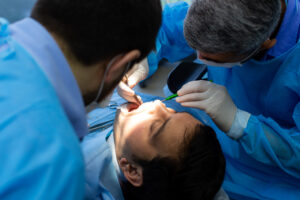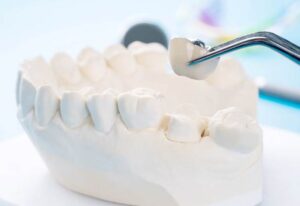What Is Tooth Sensitivity?
Tooth sensitivity is a common dental problem. It means you feel pain or discomfort in your teeth when exposed to certain things. For example, you might notice pain when eating ice cream or drinking hot coffee. Often, tooth sensitivity happens when the protective layer of your teeth wears down. As a result, the nerves inside your teeth become more exposed. This can make daily activities like eating and drinking uncomfortable. According to dental experts, tooth sensitivity affects many people at some point in their lives.
Common Symptoms of Tooth Sensitivity
Many people with sensitive teeth notice pain or discomfort in certain situations. Usually, the pain is sharp and sudden. However, it does not last long. You may notice symptoms when you:
Sometimes, the pain can come and go. But if you notice these symptoms often, it is important to talk to a dentist.
Main Causes of Tooth Sensitivity
There are several reasons why tooth sensitivity can develop. Understanding the causes can help you find the right sensitive teeth relief. The most common causes include:
Sometimes, dental treatments like whitening can also make teeth sensitive for a short time.
How Tooth Sensitivity Is Diagnosed
If you have sensitive teeth, a dentist can help find the cause. First, your dentist will ask about your symptoms and dental habits. Next, they will examine your mouth and teeth. They may use special tools to check for weak spots or exposed roots. Sometimes, X-rays are needed to look for hidden problems, like cavities or cracks. Early diagnosis is important because it helps prevent further damage. According to the American Dental Association, regular dental check-ups are key to catching tooth sensitivity early.
Effective Treatments and Remedies for Tooth Sensitivity
Fortunately, there are many ways to treat tooth sensitivity. Your dentist may suggest one or more of the following options:
In some cases, your dentist may recommend other treatments, such as a root canal, if the sensitivity is severe. Always follow your dentist’s advice for the best results.
Lifestyle Tips and Prevention Strategies
There are simple steps you can take to prevent tooth sensitivity or stop it from getting worse. Try these tips:
By following these steps, you can help protect your teeth and reduce pain. Remember, small changes in your daily routine can make a big difference.
Conclusion
Tooth sensitivity can be uncomfortable, but it is treatable. With the right care and expert advice, you can find relief and protect your smile. Consult a dentist at Mana Clinic for personalized treatment and advice on managing tooth sensitivity effectively.
Contact Mana Clinic today for expert dental care and sensitivity solutions!




